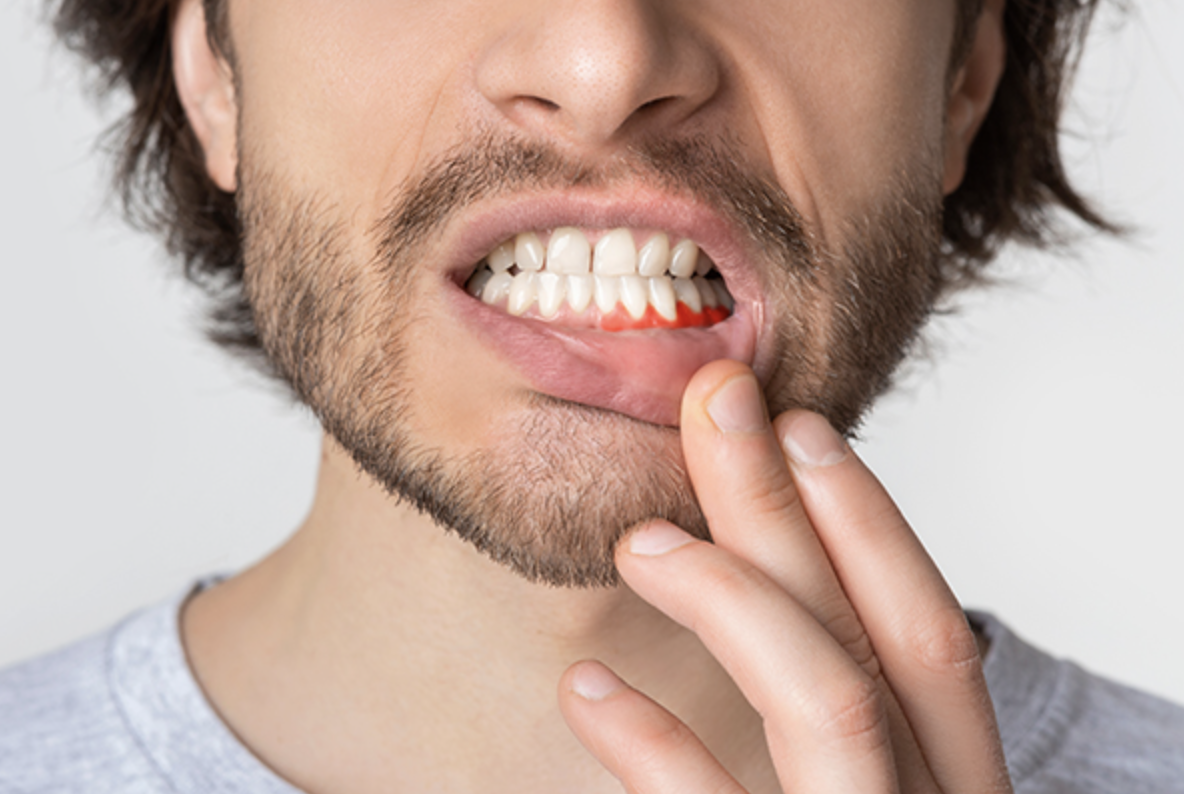Bleeding gums are extremely common – to such an extent that most of us will experience them during our lifetime. In fact, more than half the population has experienced bleeding gums while toothbrushing in the last year alone.
Bleeding gums are one of the first signs of gum disease and should act as a red flag that something needs to change in our oral health routine. To stop your gums from bleeding, here are five ways we can help stop bleeding gums.
1. Brush twice a day for two minutes with a fluoride toothpaste
This is first on the list for a reason. Brushing our teeth twice a day for two minutes with fluoride toothpaste is vital for gum health and also helps protect against other oral diseases.
For best results, brush the last thing at night and at one other time during the day, using an electric toothbrush.
It is equally as important that we spit out the excess toothpaste after brushing and don’t rinse our mouth out with water. This makes sure the fluoride stays on our teeth longer, giving us that extra protection.
2. Use interdental brushes or floss
Using interdental brushes or floss is another key component of a good oral health routine. This is because a toothbrush cannot get in between our teeth as interdental brushes or floss can. It’s important to get into these areas which a toothbrush cannot reach, otherwise, pockets of plaque may build up, potentially causing problems for our gums.
In recent years, studies have linked gum health to a reduced risk of heart disease, so the benefits go beyond our gum health.
3. Use a fluoride mouthwash
Fluoride mouthwash is beneficial for oral health as it helps to clear our mouth of debris. It also helps prevent plaque build-up on our gums, in-between our teeth, and on the surface of our teeth in between brushing.
On top of all that, it can also help to freshen our breath by killing the bacteria associated with bad breath (halitosis). It’s important that when considering a mouthwash we choose one containing fluoride to help give our teeth that extra protection throughout the day.
4. Visiting the dentist
If we have something wrong with our car, it is likely we would call a mechanic, right? The same principle applies to problems in our mouth and a dental care professional. The dental practice is the best port of call for any oral health issues we are having, including bleeding gums.
If our gums continue to bleed over a prolonged period, it is important that we don’t wait for our routine appointment to come around – pick up the telephone and book a visit.
5. Healthy diet and lifestyle
This is important not just for bleeding gums but for good health in general. A healthy diet is important in order for our mouth to function properly. Remember that when we are reading the labels ‘no added sugar’ does not necessarily mean that the product is sugar-free. It simply means that no extra sugar has been added, but does not include the presence of naturally-occurring sugars. Lifestyle factors can also affect our mouth health such as smoking and drinking alcohol. Those who smoke are more likely to have gum disease. This is because smoking causes a lack of oxygen in the bloodstream, so the infected gums don’t get the chance to heal.
Read the full original article here.



